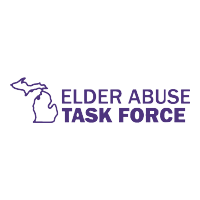AARP Hearing Center

LANSING – Michigan Attorney General Dana Nessel today announced a new series of training videos from Michigan’s Elder Abuse Task Force. The training, via the Department’s YouTube channel, focuses on recognizing, reporting and preventing elder abuse, neglect and exploitation.
While the videos are geared toward in-home caregivers for older and vulnerable adults, the 11 short sessions can be helpful to anyone concerned about the well-being of our most vulnerable populations across the state. The sessions are between three and seven minutes, and pack a wealth of information into the short timeframe. Topics include: person-centered support, recognizing and understanding stressors, conflict resolution, signs of abuse, and more.
“These training modules are an educational opportunity not just for those who are caregivers, but for anyone who is committed to ensuring our senior population is protected,” said Nessel. “I am grateful to the task force’s training and education committee – which includes individuals from the Michigan Department of Health and Human Services – for their hard work on these important training tools.”
The Task Force launched in 2019 and consists of more than 55 different organizations in the public, private and nonprofit sections – all working together to combat elder abuse. AARP Michigan has a representative on the Task Force.
The more than 80 individuals on the Task Force are divided into seven committees working diligently to accomplish nine initiatives. Achievements include the adoption of the standard investigation form for vulnerable adult investigation by law enforcement across the state, which includes the implementation of related trainings. In addition to the vulnerable adult incident report and associated trainings, legislation was passed that ensures mandated reporting for financial institutions on suspected fraud or exploitation. Legislation has been drafted to address the remainder of the initiatives and the Task Force is eager to work with its legislative partners this year to put in place increased protections for Michigan’s most vulnerable.
More information is available on the Task Force’s webpage. Those interested in updates are welcome to subscribe to receive the quarterly newsletter.































































